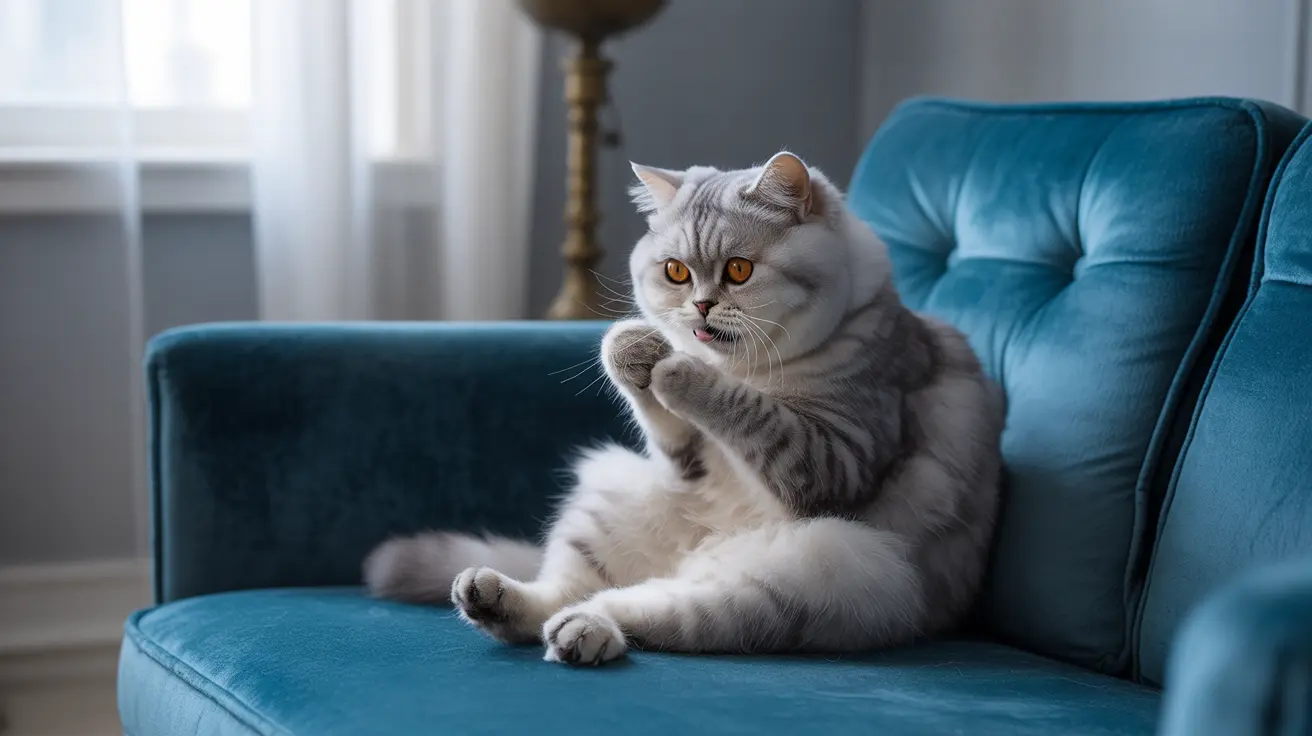Normal Grooming vs. Problematic Paw Chewing
Cats are naturally meticulous groomers, spending up to half their waking hours maintaining their cleanliness. Regular paw chewing helps remove dirt, debris, and loose fur while keeping their claws in good condition. However, when this behavior becomes excessive or obsessive, it may indicate an underlying problem requiring attention.
Common Medical Causes of Excessive Paw Chewing
Parasites and Skin Conditions
Fleas, mites, and other parasites can cause intense itching, leading to excessive paw chewing. Even indoor cats can develop parasitic infections, making regular prevention essential.
Allergies and Environmental Irritants
Food allergies, environmental allergens, or sensitivity to household chemicals can trigger paw irritation. Seasonal allergies may cause periodic increases in paw chewing behavior.
Injuries and Foreign Objects
Cuts, splinters, or embedded objects can cause discomfort, prompting cats to chew at their paws in an attempt to remove the irritant or relieve pain.
Behavioral and Psychological Factors
Stress and Anxiety
Changes in environment, new pets, or disruptions to routine can trigger stress-related paw chewing. This behavior often serves as a self-soothing mechanism for anxious cats.
Compulsive Disorders
Some cats develop compulsive grooming behaviors that persist even after the initial trigger is resolved, requiring specialized behavioral intervention.
Signs That Require Veterinary Attention
Watch for these warning signs that indicate your cat's paw chewing needs professional evaluation:
- Redness or swelling around the paws
- Hair loss or bald patches
- Bleeding or discharge
- Limping or reluctance to walk
- Changes in eating or behavioral patterns
Prevention and Management Strategies
To help prevent problematic paw chewing:
- Maintain regular flea and parasite prevention
- Keep living areas clean and free from potential irritants
- Provide environmental enrichment to reduce stress
- Monitor grooming habits and seek early veterinary care when concerns arise
Frequently Asked Questions
Why does my cat chew or lick its paws and when is it normal grooming behavior?
Normal paw chewing occurs as part of regular grooming routines, typically after using the litter box or eating. It becomes concerning when the behavior is excessive, causing visible damage or accompanied by other symptoms.
What medical issues can cause a cat to chew its paws excessively?
Common medical causes include parasites, allergies, infections, injuries, foreign objects, and arthritis. Any persistent or sudden increase in paw chewing should be evaluated by a veterinarian.
How can I tell if my cat's paw chewing is due to stress or anxiety?
Stress-related paw chewing often coincides with environmental changes or stressors and may be accompanied by other behavioral changes such as hiding, reduced appetite, or increased aggression.
What signs mean I should take my cat to the vet for paw chewing problems?
Seek veterinary care if you notice redness, swelling, hair loss, bleeding, limping, or if the behavior suddenly increases or becomes obsessive.
How can I prevent or reduce compulsive paw chewing in my cat?
Prevention includes regular parasite control, maintaining a stable environment, providing enrichment activities, and addressing underlying medical or behavioral issues promptly with professional guidance.
Conclusion
While cat paw chewing is often normal grooming behavior, recognizing when it becomes excessive is crucial for your pet's health. By understanding the various causes and warning signs, you can ensure your cat receives appropriate care when needed, maintaining their comfort and well-being.






